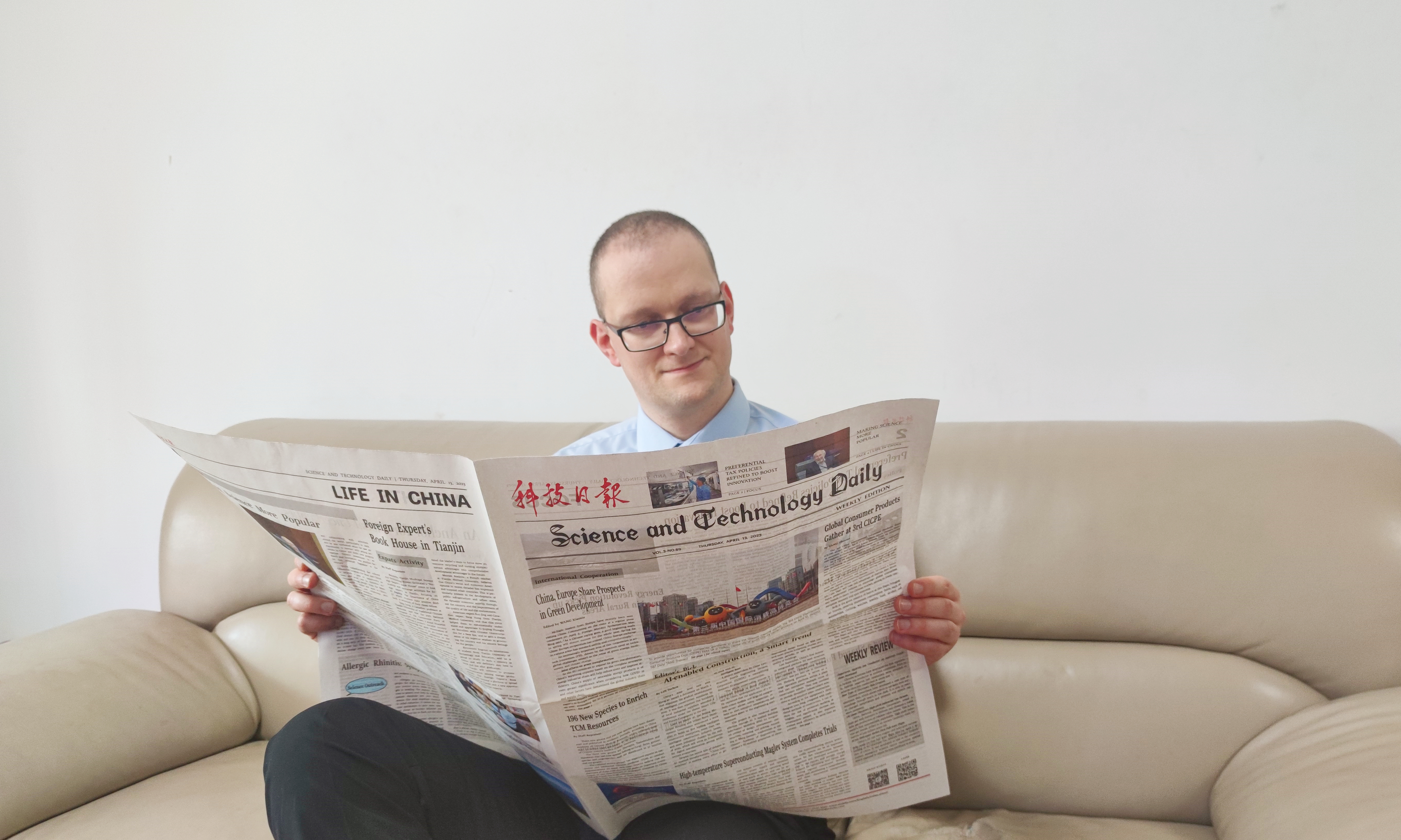Computing a Path to Success

German computer scientist Thomas Weise has been living in China since 2009. (PHOTO: Gong Qian/S&T Daily)
By?GONG?Qian
Computer scientist Thomas Weise remembers the time 13 years ago when his family and friends did not think that his decision to move to China was a good idea. But Dr. Weise's mind was made up as he wanted to spend some time abroad to grow as a person: face new challenges, learn new points of view, and get some experience beyond his research field.? China seemed like the perfect place for these ambitions.
"China was always interesting to me. It is a country with a very different way of life," the 42-year-old German told Science and Technology Daily. On his arrival at his new home, Weise began his two-year work as a postdoctoral fellow at the University of Science and Technology of China (USTC) in Hefei, Anhui province, after completing his PhD in Computer Science in Germany in 2009. He joined Professor Yao Xin's team, which is well-known for its expertise in evolutionary computing.
Initially, Weise was anxious about working and living in China. But he found himself warmly welcomed and kindly received by all the people he came into contact with. "I immediately liked the work environment in Hefei. I felt deep respect for my colleagues, who were really outstanding researchers and from whom I could learn a lot," said Weise, adding that, "The PhD, MSc and BSc students here all were hard-working, kind and really smart."
Two years later in 2011, Weise became an associate professor of the USTC-Birmingham Joint Research Institute (UBRI) in Intelligent Computation and Its Applications. "I really enjoyed working there as I had learned to do my job there sufficiently well," he said.
Weise went on to embrace a big chance to build a research group from scratch at Hefei University. This meant to him not only a new challenges, but also a next career level move - to become full professor and team leader. From 2016, he has been the director of the Institute of Applied Optimization of the School of Artificial Intelligence and Big Data at Hefei University.
After living and working in China for well over a decade, Weise believes that China's research environment is very dynamic and competitive. The country also offers good sources for funding, both for basic and applied sciences, he said.
Meanwhile, he describes the country's research environment as highly professional, saying that China has clearly defined performance metrics, funding sources with fixed deadlines, and a clear ranking of universities, journals and conferences, which allows for a fair assessment of researchers in China. "I like this," said Weise.
But it also meant that he needed to adapt to the academic performance metrics, which are very different from those in his home country. "While I honestly was a good PhD student in Germany, it took some time to become an acceptable researcher in China," said Weise.
Currently, he is working on a new optimization technique which has theoretical/mathematical properties that no other technique has. According to him, this work is now gaining traction. In April, a research group from the Netherlands went through the process to basically re-implement algorithms produced by Dr. Weise's team and ran a lot of experiments,? just to see if the team's findings were accurate. "They confirmed our results exactly," said Weise.
Previously in 2020, Weise received the Friendship Award from the Hefei government for his outstanding contributions to local sci-tech development and China-Germany cooperation.
"I want to spend the rest of career and the rest of my life here in Hefei," said Weise. His team currently has nine members who are all researchers with PhD. "We are still growing. My goal is that we eventually become a good research group, and we can make good contributions to our society and earn a good reputation, both at home and abroad," he added.
???






